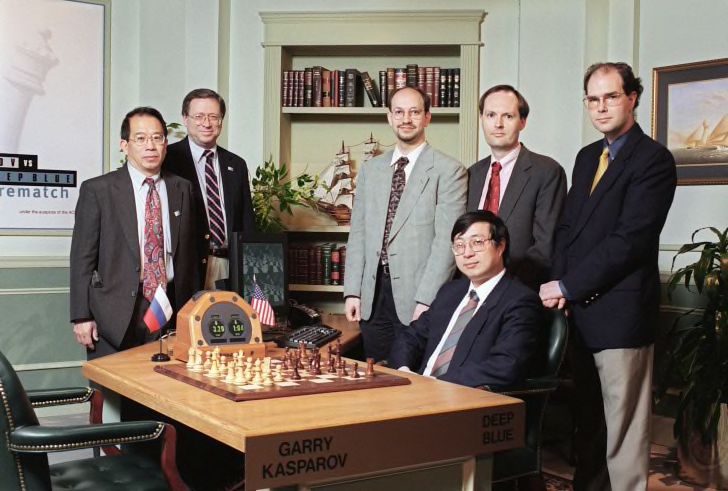
The real payoff from teaching computers to play chess may not have anything to do with the game. They haven't lived up to their side of the bargain."

"We sort of had a social contract, we thought, with the computers many years ago," Soltis says. But Soltis says they haven't imparted much wisdom about the game. They may be indefatigable and immune to psychological distraction. Soltis is less charitable to the machines that humans programmed to play chess, and that now beat their former masters routinely. And she says, computers have solved several age-old chess problems - questions of how to win when there are very few pieces on the board. Polgar says computers are great training aids for her chess teams. To a computer, all opponents look the same. To the great human chess champion, understanding the foibles of his foe can be a key to victory. "Against one opponent that loves having queens on the board - the most dangerous attacking piece - he would make sure, you know, try to get rid of the queens as soon as possible and put his opponent in a more uncomfortable setting on the chessboard," Polgar says. Polgar says this means Carlsen can win with different kinds of strategy, and he might choose his strategy based on what he knows about his opponent. One of the human players in November's match, Magnus Carlsen, the world champion, was described as playing a very un-computer like game of chess. "A computer, if it calculates that the best move is to retreat, it has absolutely no psychological boundaries holding it back from retreating," Polgar says. NPR Ed Chess For Progress: How A Grandmaster Is Using The Game To Teach Life SkillsĬomputers display no such stubbornness. "The computers are just much too good."Īnd as it turns out, some players prefer to stay away from computers as opponents, he says. "Right now, there's just no competition," Soltis says. Even chess grandmasters like author and columnist Andrew Soltis know this to be true. In the years since, computers have built on Deep Blue's 1997 breakthrough to the point where the battle between humans and machines is not even close. Kasparov's confidence proved unjustified. "I feel confident that machine hasn't proved anything yet." "I am ashamed by what I did at the end of this match. On that day, IBM's Deep Blue defeated the great Garry Kasparov who, after an early blunder, resigned in defeat. They've known as much for almost 20 years - ever since May 11, 1997. Next month, there's a world chess championship match in New York City, and the two competitors, the assembled grandmasters, the budding chess prodigies, the older chess fans - everyone paying attention - will know this indisputable fact: A computer could win the match hands down.

Sebastian Reuter/Getty Images for World Chess by Agon Limited Instead, he chooses his strategy based on what he knows about his opponent. World chess champion Magnes Carlsen (right) won't play his computer or play the game like a computer.


 0 kommentar(er)
0 kommentar(er)
